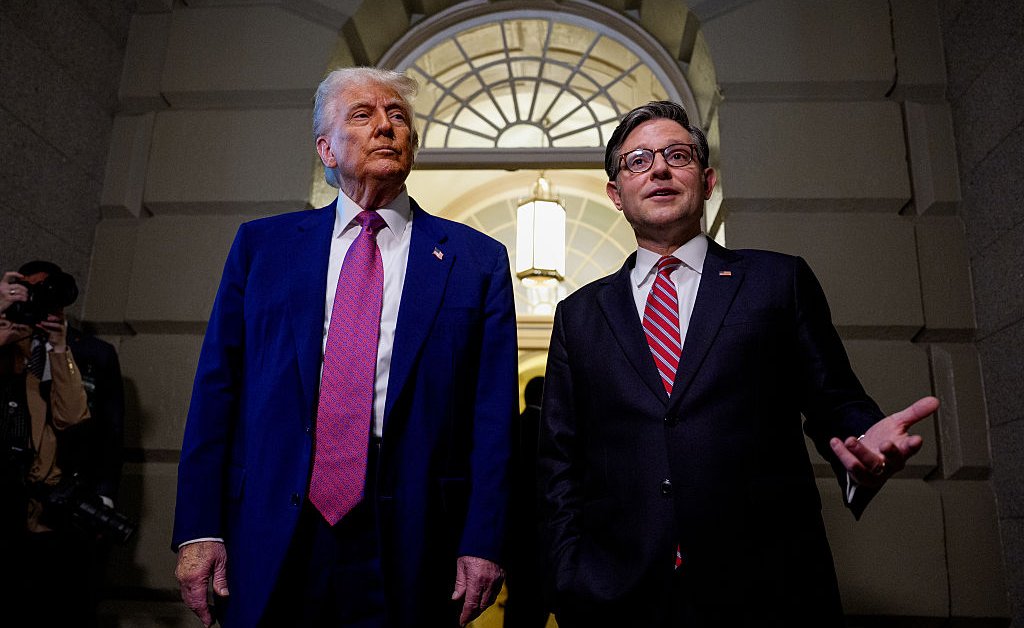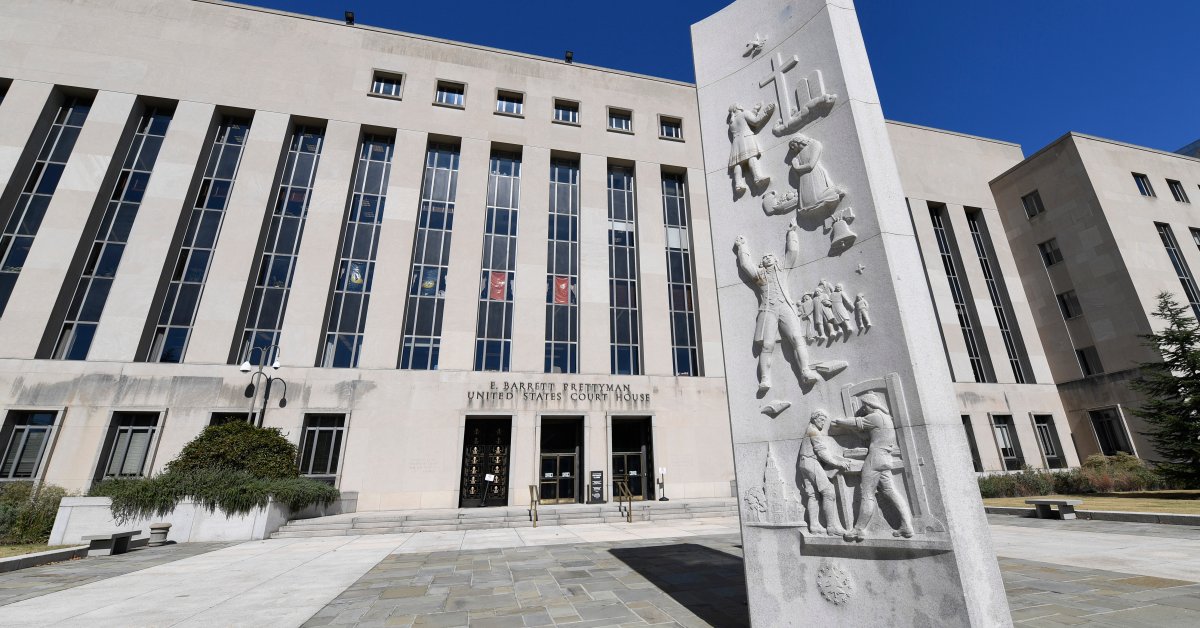President Donald Trump’s “Big Beautiful Bill” will determine the outlook for our nation’s deficits and debt for years to come. Estimates suggest that the bill will increase our already enormous federal debt over the next 10 years by anywhere between $3 trillion to $4 trillion. Perhaps even more.
Even after such a costly bill is passed and signed, however, there is an opportunity for bold presidential leadership. Trump can reverse the highly dangerous direction of fiscal policy. He can still build a Congressional and national consensus for future fiscal restraint which could curb and reverse the nation’s runaway debt, if not right away than in the coming years.
The current bill may be too far along to reverse its continuation of the seemingly endless stream of bloated deficits and debt increases of recent decades by both parties. But Trump is demonstrably a man of surprises. Now is a good time for a constructive surprise. Following in the footsteps of President Dwight Eisenhower, Trump should encourage Congress to pass budgets that meet essential national needs and still demonstrate fiscal responsibility.
To achieve true fiscal responsibility, the goal would be to reverse, or at least stabilize, the mushrooming of federal debt over the course of this decade and beyond, as well as to put Social Security and Medicare and Medicaid on a sound financial footing so beneficiaries can rely on them for the long-term. This might seem like a pipe dream, but there are precedents for such leadership.
In this respect, President Trump would do well to be guided by the example of Eisenhower, who by several of his own bold decisions played a major role in making America Great—strong militarily and strong financially.
Read more: The Budget Bill’s Big Consequences
Ike was no stranger to strategic decisions. As General Eisenhower, Supreme Allied Commander in Europe, he planned and oversaw the implementation of the overall strategy of the War in Europe. And he alone decided on the timing of the high-risk D-Day Landings. As President, Eisenhower made tough decisions to resolve fierce domestic budget debates, often within his own party, to curb the desire of many in Congress to enact large tax cuts and spending increases that would balloon the nation’s debt.
His administration instead significantly reduced the debt over his eight years in office. It was, Eisenhower said, necessary to curb America’s deficits and debt to avoid “destroying from within what you are trying to defend from without.”
On numerous occasions he warned Congress to resist excesses that could undermine the long-term strength of the nation’s economy as well as its political and its social cohesion. “The Federal government must not only live within its means but must, in times of prosperity, begin reducing the national debt,” Eisenhower argued. His premise was that the maintenance of sound government finances was basic to a sound economy, which in turn was vital to sustained national security.
Eisenhower was determined to reverse, and then keep a lid on, the growth of federal debt. His challenge was to move the economy from a wartime footing to one that could produce new jobs—while holding down the inflation that many economists predicted.
Federal debt had been $51 billion in 1940, before the U.S. entered World War II. It had risen to $260 billion by its end—106% of GDP. Fearing that a large increase in inflation due a public rush for goods not produced during the war, such as cars, would be augmented by a sharp rise in federal spending and by excessive tax cuts, Eisenhower aimed to avoid these. But he still wanted to fund programs, like new interstate highways, to sustain growth, and to absorb jobs lost from military demobilization and layoffs in the defense industry.
By the end of his presidency, federal debt as a portion of GDP had been cut nearly in half to roughly 55% of GDP. This was despite spending for the Korean War and the Cold War, and some catchup spending for domestic programs that had been postponed during World War II—plus his signature Interstate Highway System. Annual deficits averaged below $4 billion during this period including two years of surplus and one of balance.
This stands as a remarkable achievement. To be sure, low deficits and surpluses cannot be entirely attributable to Eisenhower’s resolute budget policies. The dramatic cut in defense spending after the War was, of course, the key factor. Growth in the economy in most years that generated positive revenues was another. But his fiscal leadership was one key element. And it set the direction for the country for much of the next half century.
Read more: The GOP Budget Takes From the Poor and Gives to the Rich
The fiscal challenge for Trump and Congress today is considerably different. The fundamental characteristics of the economy have changed greatly. Social Security outflows were barely a factor in the 1950s; average lifespans were not as long as today, and there were far fewer recipients. America had a young rather than an aging population. Medicare and Medicaid did not exist; they would be instituted in 1965.
And the question of deficits has become a far less important voting issue than in the 1950s; we as a country seem to have gotten used to them to the point that in 2003, Vice President, Dick Cheney went so far as to suggest that “deficits don’t matter.” He wasn’t speaking economically; his point was that they didn’t have much of a political effect. He was correct. And they apparently still don’t. Their long-term effects are ignored by large numbers of Americans and members of Congress. Complacency dominates long-term vision.
Remarkably, the enormous size of our debt, now above $36 trillion, has attracted little public attention. As a percentage of GDP, federal debt has risen to the point that the amount held by the public is about to exceed the level of World War II.
Interest on our debt will soon exceed $1 trillion (more than defense and Medicare combined). That prospect also has attracted little public attention or resistance. Neither set of facts seem high on America’s political agenda. Nor has the chilling reality that the Medicare Hospital Insurance Trust Fund will run out of funds in 2033 or before—nor that the main Social Security Trust Fund, which now benefits 68 million Americans, will do so at about the same time.
There has been a mentality of kicking the can merrily down the road. A feeling among many in Washington that “someone else eventually will fix it.” That is a mirage. The more debt and interest payments grow, the more difficult it will be to solve the problem. The government will be stretched or unable to fund vital domestic programs, cope with emergencies such as Covid, meet urgent defense requirements in an increasingly dangerous world, stimulate the economy during any future recession, or fund disaster relief. Washington is digging a deeper and deeper hole. Rather than stopping, however, it is digging deeper still.
The President should address these matters, as did Eisenhower, in public speeches and in frequent meetings with the Congress. He should constantly speak about how rising debt and a steady stream of deficits threaten the American financial system, vital programs, the ability to deal with emergencies, national security, and future prosperity. To this he should add the dangers threatening the millions of families who rely on evaporating Social Secutiry and Medicare trust funds. Growing deficits also undermine America’s creditworthiness and credibility as an ally.
Like Eisenhower, Trump cannot resolve these issues all at once. But he can take steps to establish a new, fiscally responsible national political mentality, including among his many followers, as well as a common set of goals for reducing deficits and an institutional framework for achieving them over a reasonable period.
And, perhaps, he can add on the current bill—or create by executive order—a bipartisan commission of experts to suggest and examine various options for implementing a transformational long-term strategy for debt reduction. Too often, commissions in Washington are synonymous with doing nothing. However, the goal of this would be to call important attention to the dangers of current budgetary trends.
President Eisenhower was able to convey to most Americans the dire future for the country of letting the budget deficit get out of hand. So can President Trump. And like Eisenhower, Trump will need to work toward a bipartisan consensus. If he does these, he will have made a dramatic contribution to America’s wellbeing for generations to come.
Is this a long shot? Perhaps. Is it a great historic opportunity? Undeniably.








